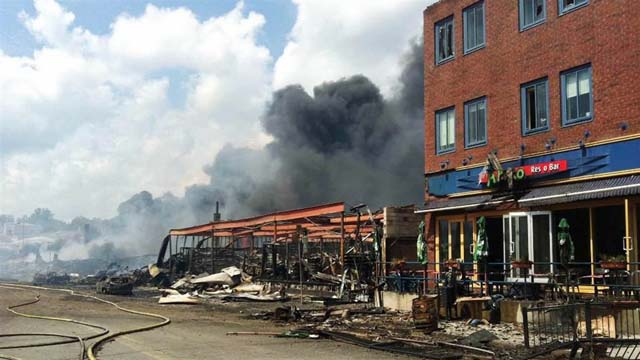

Lake Megantic Quebec - Re: "We learned from Lake Megantic, continuing to drive towards goal of zero accidents - Railway Association," The Hill Times, 8 Feb 2016.
Michael Bourque, president and CEO of the Railway Association of Canada (RAC), responding to my Hill Times commentary (1 Feb 2016), "Have we learned the lessons of Lake Megantic? No," accuses me of spreading false information.
He concludes, "We learned from Lake Megantic."
Let me recall some inconvenient truths about the RAC.
At a time when oil transportation by rail was growing exponentially, according to records filed with Lobby Register, RAC sought to " ...assure regulators that current regulations for dangerous goods transportation are sufficient."
In post-accident disclosures it removed this claim.
Weeks before the accident, a CBC investigation reported that RAC lobbied to remove the rule requiring certified rail car inspectors to do detailed examinations of brakes, axles, wheels, etc., on tank cars carrying dangerous goods before they are loaded.
The RAC's 2008 re-drafting of the rail operating rules, approved by Transport Canada (TC) over the objections of the unions, included General Rule M, which enabled companies to implement single-person train operations for freight trains without needing an exemption and accompanying rigorous conditions.
Subsequently, the RAC lobbied hard on behalf of MMA, a railway with an atrociously poor safety record, to allow it to operate its oil trains with a single operator.
Senior TC officials approved the MMA request despite opposition within TC itself.
The draft Transportation Safety Board (TSB) report, a copy of which was obtained by Radio-Canada's Enquete, revealed the existence of a single operator was "a cause and contributing factor" to the accident.
In its final version this was inexplicably demoted to "findings as to risk."
Immediately after the accident, TC issued an emergency directive modifying General Rule M to require a minimum of two operators on trains carrying dangerous goods.
It also issued an emergency directive requiring that locomotives carrying dangerous goods should not be left unattended on the main track.
Months later, the RAC proposed instead a set of securement rules, which would allow trains carrying dangerous goods to be left unattended on the main track subject to inspections at two hour intervals.
TC approved it, reversing its earlier directive.
According to Mr. Bourque, "Safety Management Systems (SMS) are an effective additional line of defence."
In theory, yes.
However, several auditor general reports have concluded they contain serious flaws.
Moreover, if the government does not allocate sufficient resources for monitoring and enforcement, are not the companies left, in practice, to regulate themselves?
Have the lessons of Lake Megantic been learned?
TC and the industry have taken measures to improve rail safety.
But are they are sufficient?
Too many unanswered questions remain about the root causes of that terrible tragedy, not the least of which is regulatory capture by industry, for me to feel confident that the right lessons have been learned.
Bruce Campbell.


